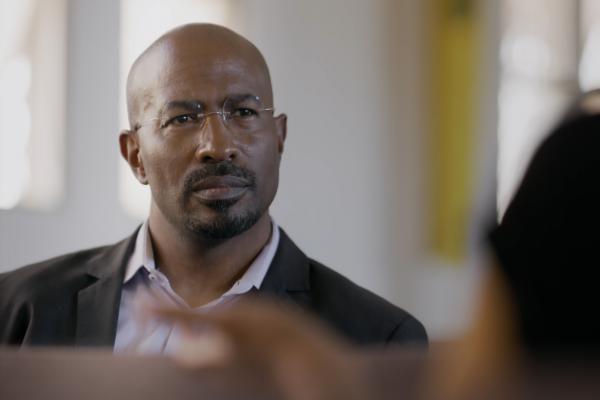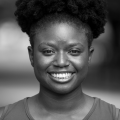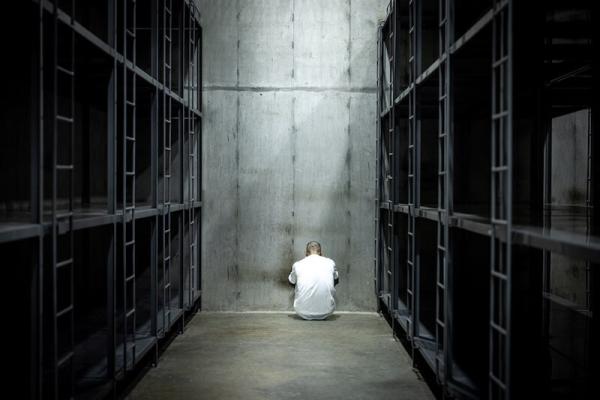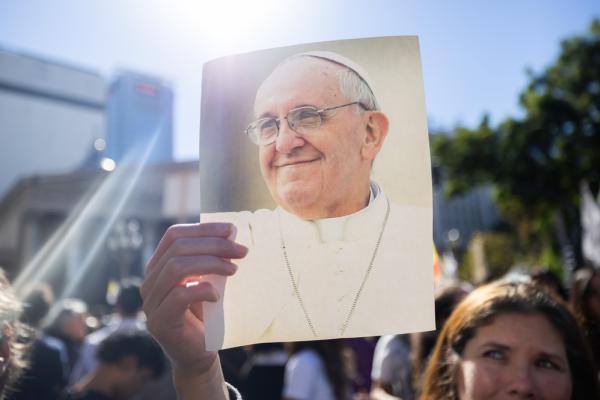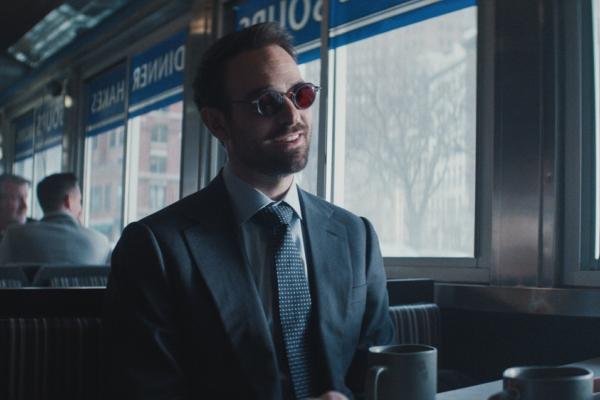Working toward equality and fairness is not a new concept for political commentator and attorney Van Jones — it's an intrinsic part of his work as an activist. The Tennessee native and Yale law graduate's career has long been geared toward social change in his community.
That passion was first ignited as he pursued a career in law, working with the Lawyers’ Committee for Civil Rights in 1992, where he served as a legal observer on the Rodney King trial. Jones would later go on to spearhead the organization’s Bay Area Police Watch program, a lawyer referral program for victims of police abuse, and co-found the Ella Baker Center for Human Rights, which organizes black and brown communities to shift resources away from prisons and punishments, to safe and strong communities. Jones has gone on to serve as Special Advisor for Green Jobs under President Barack Obama, is the president of Dream Corps, and has appeared as the co-host of CNN’s political debate show Crossfire.
His latest docuseries, CNN’s The Redemption Project, takes a look at what restorative justice and healing looking like within our criminal system, bringing offenders face to face with those affected by their violent crimes in hopes of promoting dialogue and healing.
Sojourners recently spoke with Van Jones by phone about The Redemption Project and how the show tries to serve as a step toward creating a real dialogue around restorative justice, healing, and empathy in our communities.
This interview has been lightly edited for length and clarity.
Kayla Lattimore, Sojourners: I had a chance to see an episode of the series that followed a father confronting the man that shot his daughter. It was a compelling episode and an intense emotional journey to be taken through, but not one I have seen before on television. What first gave you the idea for this project?
Van Jones: Well, look, I have been going in and out of prisons for the past 25 years as a lawyer and an activist working on criminal justice reform. I'm aware that people can go into prison — you know, very misguided very arrogant — with no remorse, and then 10 years later, 20 years later, they have transformed themselves. Not because of prisons, but in spite of prisons often, and into some of the most remarkable, wise, strong people that I've ever met — stronger than 99 percent of people who are not in prison.
I knew we had these diamonds kind of sparkling behind the walls of prisons. I also have watched, really, with a lot of heartbreak and sorrow, the exit from our culture of forgiveness, empathy, compassion, grace, any kind of second chances. I've been watching this cancel culture, blocking people on social media, and these Twitter mobs where you people are so happy to be the 4,000th person to retweet something negative about somebody. And I'm very concerned about what kind of society we're going to have. How is anybody going to be able to grow? We're going have to have much more empathy and understanding, and those two reasons made me very excited to try to do a show that would go 180 degrees in the opposite direction of this kind of nastiness in our culture to show people — who really should be mad and should try to cancel each other — actually sitting down and trying to have some type of a humane conversation.
Kayla Lattimore, Sojourners: You and the producers of the show took a documentary style approach of storytelling. I was curious why you chose this approach as opposed to a more reality-TV style?
Van Jones: I'm really proud of the director, Jason Cohen. He did an Oscar-nominated documentary about an American Neo Nazi who reconciled with one of his victims. And, you know, in some ways this is a continuation of the true crime genre, but it's also the opposite of the true crime genre. With true crime, the whole thing is “who done it?” and when there’s a verdict or an exoneration, that's kind of the end of the story. But no, that's not true. Ten years later people are still suffering. Twenty years later people are still suffering.
So, we come in at that point and say: OK, how do we deal powerfully with that? That's a deeper thing, and it requires a thoughtful treatment because you're now opening up some old wounds. You're taking some risks with people's emotions to put them in the same room together. This is not something you do for shock value. This is something that you do because you believe on the other side of it, there can be some real healing for both parties even if it's not total forgiveness.
Kayla Lattimore, Sojourners: How important do you think it is to have narratives that express more empathy for these individuals that we may see as villains?
Van Jones: Well, part of the reason we're doing this show is because I believe it’s very important. I'm not trying to make excuses for inexcusable stuff, but I also know that you cannot and should not reduce any human being to be defined only by the worst decision they ever made. You know, you wouldn't want that. Nobody could survive. None of us lives up to our highest standards every day, and none of us are who we want to be any day. So, we have to keep in mind these two things: We need high standards, but we also need open hearts.
We've got to the point where in order to have a high standard, we have to have a closed heart. And it's creating a very sick culture. When you have a gang member who killed somebody, we have to deal with that. At the same time, when you find out the person was eating out of garbage cans for the past two years, that's a different thing.
And so, it's not an excuse, but it is an explanation that might get you to a different place when you're thinking about what a just outcome is.
Kayla Lattimore, Sojourners: What would you say to anyone questioning the value of this program? Having these families meet with the incarcerated individuals that caused them harm, how is this show beneficial to our society?
Van Jones: First of all, this is my life. Criminal justice reform is my life. I'm the CEO of the Reform Alliance, which was started by Jay-Z and Meek Mill and about half a dozen other heavy hitters, to try to make our justice system more equal. So, for me it's not just a TV show — it's a part of an overall thing I've given my life to. However, as a TV show, I think it's important that we start making it trendy and fashionable for people to care about each other and start making it trendy and fashionable for people to try to resolve conflict and heal pain as opposed to being celebrated for having all this conflict.
It's gotten to the point now where the best way for you to get a big following is to be the nastiest person in the world and attack other people. … So much of our online culture is that way. And that is not a healthy society.
If this show can be successful, if people can look at this show and get excited talking about people who are talking to each other — as opposed to just talking about each other online — that could be very healthy.
Got something to say about what you're reading? We value your feedback!
